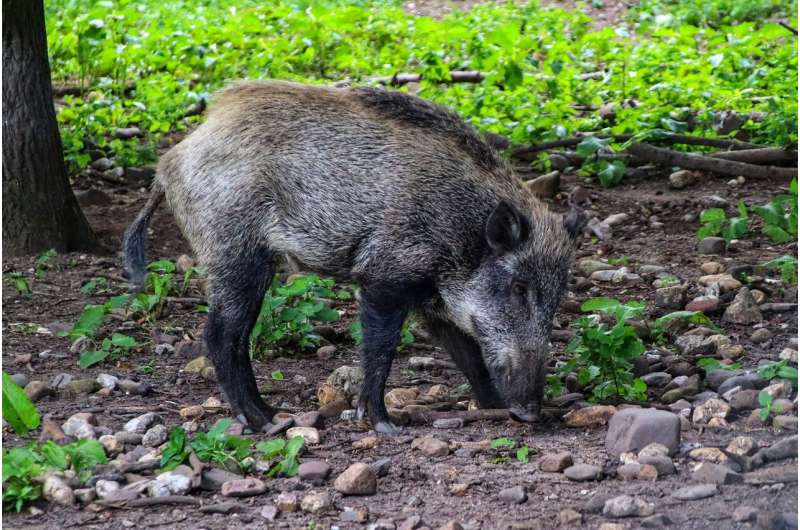Credit: Pixabay/CC0 Public Domain
A team of researchers affiliated with multiple institutions in Poland has found that an outbreak of African swine fever seven years ago could influence forest dynamics in a given area for many years to come. In their paper published in Proceedings of the Royal Society B, the group describes their years-long study of oak trees and the acorns they produced in the Białowieża primeval forest.
African swine fever (ASF) is a highly contagious and deadly disease that impacts both wild and domestic pigs. Prior research has shown that it has been infecting animals in Poland since 2014 and the Białowieża forest since 2015. In this new effort, the researchers wondered if the outbreak of ASF might play a role in long-term forestry dynamics. To find out, they ventured into the Białowieża forest and counted the number of acorns produced by 29 trees over the years 2009 to 2020. Acorns, the researchers note, make up approximately 70% of a wild boar's diet. Also, oak trees do not produce acorns every year, instead they produce them every few years in concert with the other trees around them. This results in periods where no acorns are produced for a few years in a row and then in years where there are so many acorns that the boars cannot possibly eat them all. This is a plant strategy called "masting" that helps to ensure the oak trees perpetuate despite animals eating their acorns. But what happens when most of the boars in a given part of a forest die due to ASF?
The researchers note that approximately 90% of the boars living in the area where they were counting acorns died during the 2015 outbreak. And that led to approximately twice as many acorns establishing themselves in the ground. Such high numbers suggest that in the coming years many new trees will be growing in the areas where the boars died, which in turn suggests that the 2015 outbreak represents a significant influence on forest dynamics.
More information: Michał Bogdziewicz et al, Emerging infectious disease triggered a trophic cascade and enhanced recruitment of a masting tree, Proceedings of the Royal Society B: Biological Sciences (2022). DOI: 10.1098/rspb.2021.2636
Journal information: Proceedings of the Royal Society B
© 2022 Science X Network























